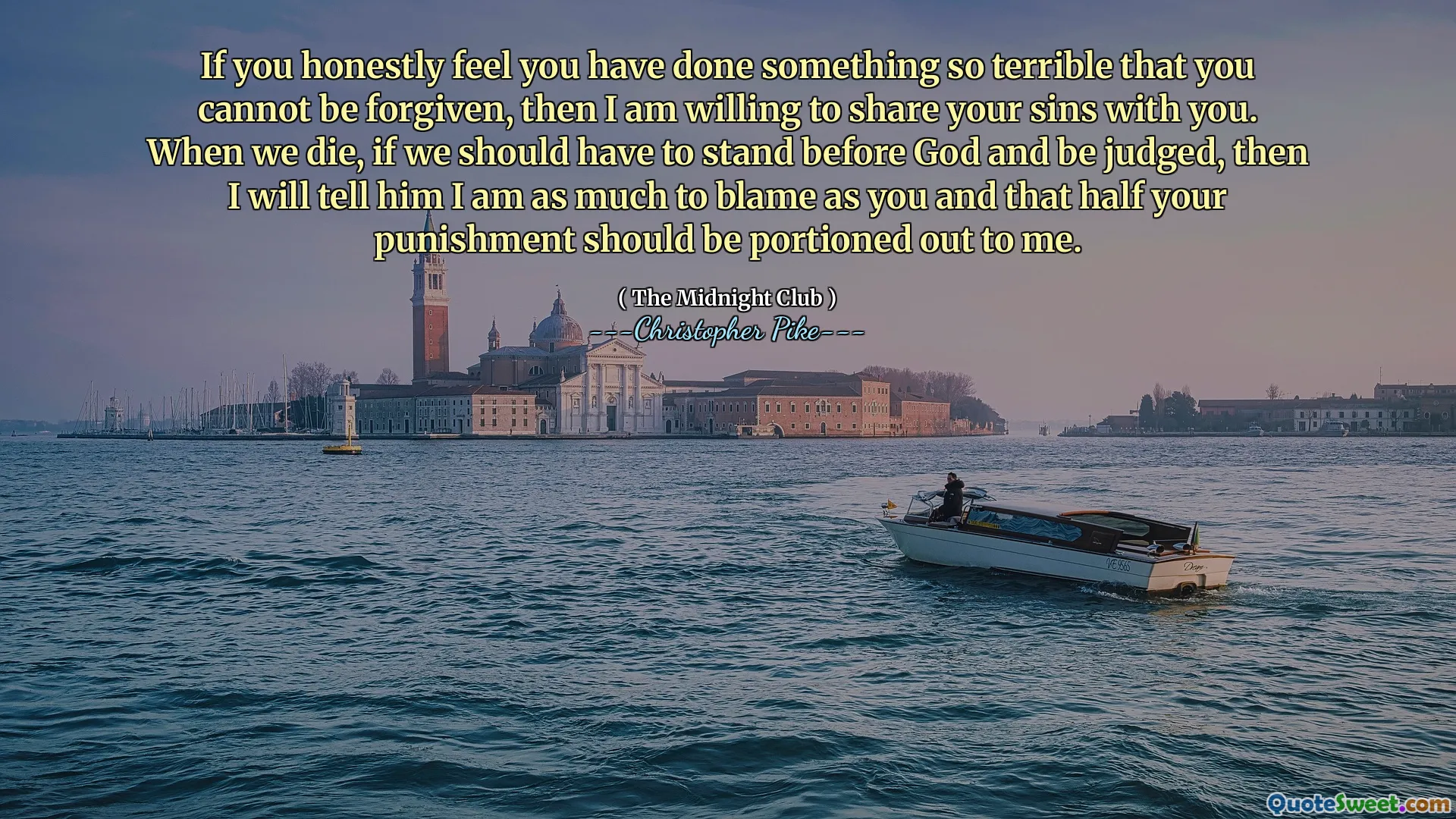
If you honestly feel you have done something so terrible that you cannot be forgiven, then I am willing to share your sins with you. When we die, if we should have to stand before God and be judged, then I will tell him I am as much to blame as you and that half your punishment should be portioned out to me.
This quote explores the profound themes of empathy, shared responsibility, and sacrificial compassion. It highlights a perspective where love and understanding transcend mere forgiveness; instead, it emphasizes standing alongside someone in their darkest moments of regret and guilt. The speaker’s willingness to share the burden of sins suggests a deep sense of empathetic connection and moral solidarity, asserting that true compassion involves accepting parts of another's suffering. It prompts reflection on how guilt and remorse are, at times, burdens too heavy to carry alone. In the face of divine judgment, the speaker proposes a gesture of solidarity, implying that accountability is not solely personal but can be borne collectively through love and empathy. This mindset fosters a sense of community where forgiveness is not just about absolving faults but about acknowledging shared human fallibility. It also raises ethical questions about the boundaries of responsibility and how we support those who are burdened by their actions. The emotional weight behind the words reveals an ideal that compassion is an active choice—one that involves empathy, sacrifice, and unconditional support. By emphasizing willingness to share blame, the quote encourages us to consider how we treat those who are suffering from guilt and how we might act with greater kindness and understanding in our own relationships.






